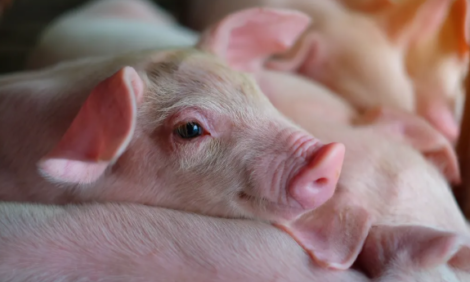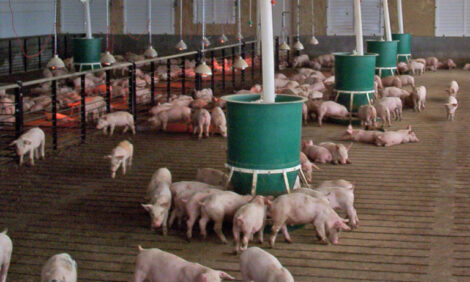



Use of Antitoxins in Piglets Prior to Exposure to Mitigate the Effects of Clostridium difficile Infection
A pilot study at Iowa State University point to the potential of an anti-toxin to prevent a significant cause of losses of newborn piglets from scouring.Administration to newborn pigs of an oral or intraperitoneal dose of equine-origin Clostridium difficile antitoxin four hours before oro-gastric inoculation with a swine-origin C. difficile field isolate resulted in lower histopathology scores 72 hours post challenge than in pigs receiving no antitoxin (P<0.05).
That is the conclusion of a pilot study in Journal of Swine Health and Production reported by Dr Alejandro Ramirez and colleagues at Iowa State University.
In their paper, the researchers explain that C. difficile has been implicated as a major cause of neonatal diarrhoea in pigs in recent years.
Infection typically affects piglets between one and seven days of age, with clinical signs typically diarrhoea, abdominal distention and scrotal oedema, with most of the pathology being attributed to toxins A and B.
C. difficile is widespread in the US and has been referred to as the most important uncontrolled cause of neonatal diarrhoea in the pig. Studies indicate a prevalence rate of about 50 per cent and litter productivity may be affected by up to 15 per cent.
The use of prophylactic antibiotics has been unsatisfactory and unrewarding for pig producers, added Ramirez and colleagues.
Reference
Ramirez A., E.W. Rowe, P.H. Arruda and D.M. Madson. 2014. Use of equine-origin antitoxins in piglets prior to exposure to mitigate the effects of Clostridium difficile infection – a pilot study. J Swine Health Prod. 22(1):29–32.
Further Reading
You can view the full report by clicking here.
Find out more about clostridial diseases in pigs by clicking here.
March 2014








